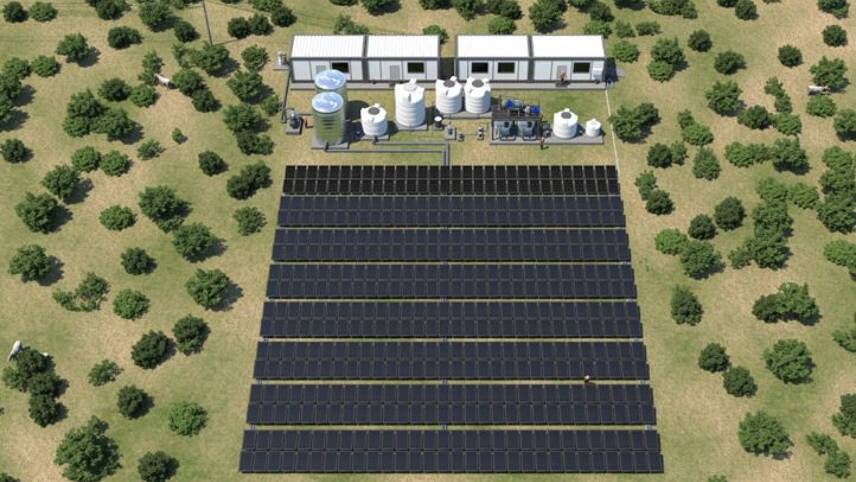Register for free and continue reading
Join our growing army of changemakers and get unlimited access to our premium content

Pictured: An artist's impression of the facility. Image: Desolenator
The facility is being developed by Desolenator and is due to come online in 2021. Once complete, it will provide 20,000 litres of clean drinking water to the residents of The Sundarbans in West Bengal. The brewer’s Kolkata brewery is 120km away from the new facility.
West Bengal is experiencing water stress due to rising temperatures, which have, in turn, contributed to sea-level rise and extreme weather events. It was affected by Cyclone Amphan earlier this year and existing aquifers are experiencing pollution and damage in the aftermath of the disaster.
Carlsberg is working with organisations including charity WaterAid and researchers at Strathclyde University as well as Desolenator. The charity will work to ensure that water from the facility is distributed fairly and will train local female entrepreneurs to staff the facility and undertake further R&D.
The announcement comes as Carlsberg works towards its Together Towards Zero sustainability strategy, which includes targets to reduce water consumption by 25% in breweries, with the more ambitious targets placed on high-risk sites. As a result, water consumption below 2 hl/hl should be achieved – well below the global best practice average of 3.4hl/hl.
“Water is one of the four main ingredients in beer and healthy communities with access to clean and safe water is a prerequisite for our breweries around the world,” Carlsberg Group’s chief executive Cees’t Hart said. “Working in partnership to introduce innovative technology, Carlsberg can help local communities with access to clean water, building on our history of science and innovation and citizenship.”
Next-gen water stewardship
WaterAid recently published a report revealing that less than 1% of the international climate funding provided in 2018 was allocated to help the world’s poorest people – who are more likely to live in water-stressed areas – to access water and sanitation.
This is despite the fact that two billion people globally lack access to clean water, and that the UN is warning of widespread water scarcity by mid-century. Moreover, access to WASH is a key human rights issue – particularly in the context of Covid-19, and with less than a decade left to achieve the Sustainable Development Goals (SDGs).
Many businesses are seeking to bridge the gap between international investment from governments and finance firms by investing in WASH infrastructure across their supply chains – prioritising areas of high water stress and low income.
Carlsberg is one such business, along with other majors brewers and beverage firms like Diageo, AB InBev and The Coca-Cola Company. Best practice is now to target a net-positive water impact and to prioritise water-stressed and water-scarce regions in a way that delivers co-benefits.
Those interested in the evolution of corporate water stewardship will be keen to read edie’s latest blog from AB InBev’s global VP for sustainability, Ezgi Barcenas. That article can be found here.
Sarah George


Please login or Register to leave a comment.